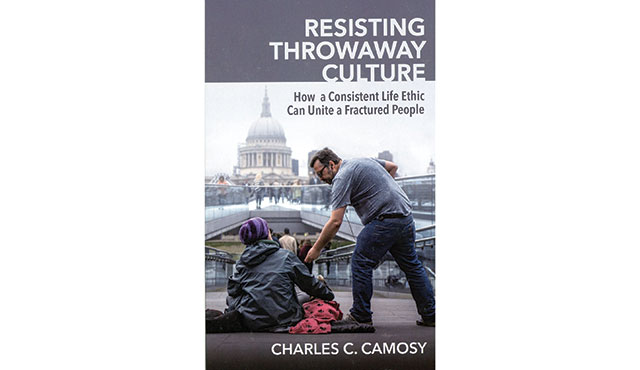A two-part webinar featuring Charles Camosy, the award-winning author of “Resisting Throwaway Culture: How a Consistent Life Ethic Can Unite a Fractured People,” aims to bring hope to humanity post-election and pandemic.
The first program, scheduled for Nov. 10 at 7 p.m., will focus on “Hope for Post-Election Politics: Hospitality and Encounter.”
The 2020 presidential election signals the end of what has been a terribly divisive year. Many in the U.S. have withdrawn into opposing camps, formed in part by antagonism toward others who hold different convictions. In this talk, Camosy, associate professor of theological and social ethics at Fordham University, will make the case that post-election, U.S. culture is ripe for a “politics of encounter”—one that can bring hope by replacing antagonism with politics that start with dialogue and a commitment to the fundamental equality of and respect for all human beings.
Julie Hanlon Rubio, author of “Hope for Common Ground: Mediating the Personal and the Political in a Divided Church” and professor of Social Ethics at Santa Clara University, will join Camosy to in the conversation. Camosy and Rubio will launch a dialogue about post-election hope and resources the Catholic tradition can offer for politics that seek common ground.
On Wednesday, Nov. 18 the program will feature dialogue on “Hope After the Pandemic: Building Solidarity, Resisting Throwaway Culture.”
The theme is inspired by Pope Francis’s words: “Solidarity is the road to take towards a post-pandemic world, towards the healing of our interpersonal and social sicknesses. There is no other path.”
What Pope Francis says about the post-pandemic world in general is particularly true for Southern California. The pandemic has highlighted profound “social sicknesses” in our region, involving health care, housing, nursing homes and job loss. The impact on the poor, the elderly and communities of color shows how throwaway culture deeply affects the most vulnerable. In this talk, Charlie Camosy will lay out a path that each of us can take towards deeper solidarity in our families, communities and region.
Register for both webinars at this address: https://bit.ly/3oDakOR

